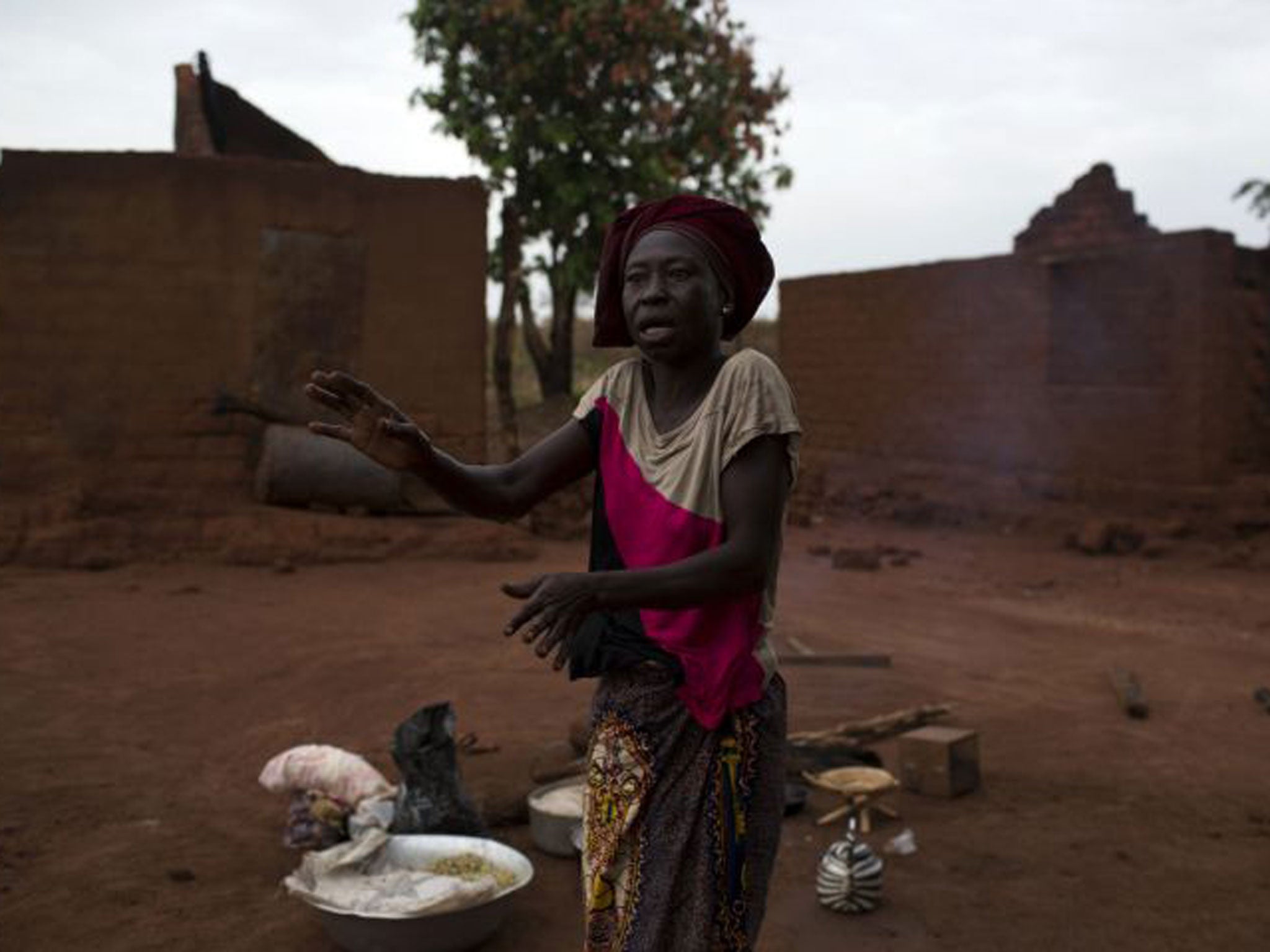UN aims to bring killers to account in Central African Republic
Security Council probe to interview Christian and Muslim victims with aim to 'stop any advances toward genocide'

Your support helps us to tell the story
From reproductive rights to climate change to Big Tech, The Independent is on the ground when the story is developing. Whether it's investigating the financials of Elon Musk's pro-Trump PAC or producing our latest documentary, 'The A Word', which shines a light on the American women fighting for reproductive rights, we know how important it is to parse out the facts from the messaging.
At such a critical moment in US history, we need reporters on the ground. Your donation allows us to keep sending journalists to speak to both sides of the story.
The Independent is trusted by Americans across the entire political spectrum. And unlike many other quality news outlets, we choose not to lock Americans out of our reporting and analysis with paywalls. We believe quality journalism should be available to everyone, paid for by those who can afford it.
Your support makes all the difference.The head of a United Nations inquiry said on Monday it was seeking to establish who should face prosecution for killings and other crimes in Central African Republic in order to halt for good bloodshed that has raised fears of genocide.
Thousands have been killed since the Seleka, a coalition of mostly Muslim northern rebels, seized power a year ago and launched a campaign of looting, torture and killing in the majority Christian country, triggering Christian reprisals. The UN estimates some 650,000 have been displaced by religious violence, while nearly 300,000 have fled to neighboring states.
"We want to present to the Security Council a complete file so that the appropriate action can be taken," Bernard Acho Muna, who chairs a commission of inquiry set up by the UN Security Council in December, told a news briefing.
"The Central African Republic has had many coup d'etats. And basically after each coup d'etat there is reconciliation, and nobody is held accountable and then in the end we have people sitting in the cabinet, in government with blood on their hands and this has never helped the situation."
Muna, a former judge in Cameroon, said that a team of UN investigators would arrive in Bangui on Tuesday to begin interviewing Christian and Muslim victims of attacks, senior political and miltary officials and activist groups.
They would draw up a confidential list of suspects for eventual prosecution, to be submitted to world powers later this year, and would also be in touch with a preliminary inquiry by the International Criminal Court (ICC), he said.
"Our role is definitely in going towards the establishment of law, the bringing of people who have committed offences to book," Muna said.
He hoped his investigation would signal to people making what he called "hate propaganda" that they should not embark on greater bloodshed.
"We have also heard reports of genocide. But one thing I can tell you from my Rwandan experience, is that there is definitely a question of propaganda already, hate propaganda, that is usually a very bad sign when they say propaganda."
"We don't wait until genocide is committed and then we call for prosecution. I think it is in our mandate to see how one can stop any advances toward genocide," said Muna, a former deputy prosecutor of the International Criminal Tribunal for Rwanda, which investigated 1994 mass killings.
The commission, which includes former Mexican foreign minister Jorge Castañeda and Fatimata M'Baye, a lawyer fom Mauritania, will spend two weeks in Central African Republic and also look into Chad's role in the violence, he said.
One mother’s deal with the enemy to save her baby
REUTERS
Join our commenting forum
Join thought-provoking conversations, follow other Independent readers and see their replies
Comments